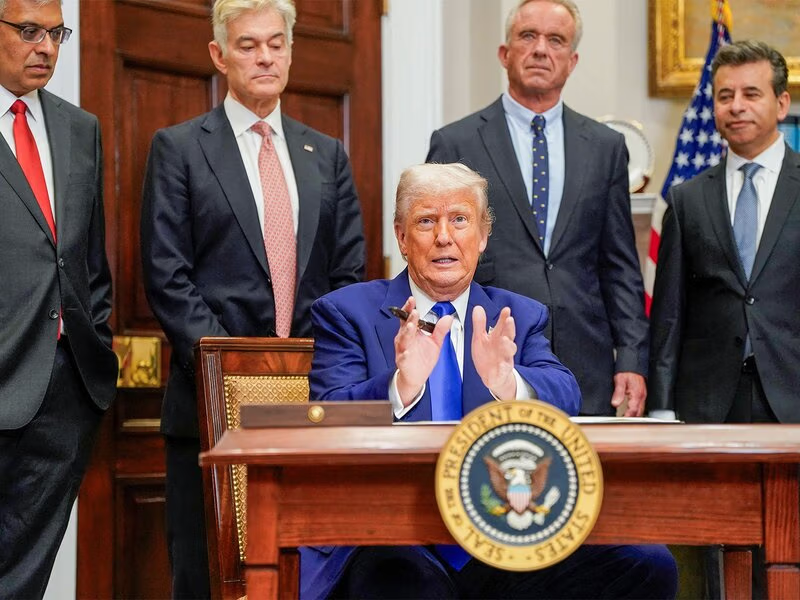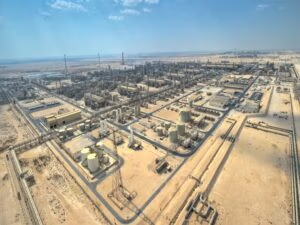U.S. President Donald Trump has escalated pressure on the global pharmaceutical industry, announcing plans to impose a 100% Drug Tariff on imported branded drugs starting October 1 unless companies can show active construction of U.S. manufacturing facilities.
The move, framed as a push to “reshore” critical supply chains, will apply to patented medicines but exempt generics. It forms part of a broader tariff package that includes levies on heavy trucks (25%), kitchen cabinets and vanities (50%), and upholstered furniture (30%). This Drug Tariff is designed to incentivize domestic production.
Markets reacted sharply. Shares of drugmakers in Asia tumbled on Friday, with Indian, Japanese, and Australian exporters most exposed to U.S. branded medicine sales bearing the brunt. Analysts warned the Drug Tariff could disrupt supply chains and put upward pressure on healthcare costs in the near term.
Industry leaders are scrambling for clarity. Roche, which operates U.S. subsidiary Genentech, highlighted its North Carolina facility under construction, a project that could exempt it from the new duties. “Companies with visible U.S. investment plans may navigate this policy better, but uncertainty remains high,” one industry analyst told Reuters.
Critics argue the tariffs risk making prescription drugs more expensive for U.S. patients before domestic manufacturing capacity can catch up. Trade partners are also likely to push back, with legal challenges at the WTO seen as a near certainty.
The broader impact extends beyond pharmaceuticals. By linking tariff exemptions to U.S. factory construction, the administration is signaling a new model of industrial policy, one that ties trade access directly to domestic investment commitments.
With branded drugs representing a multibillion-dollar market for exporters in Europe and Asia, global pharmaceutical supply chains face a period of heightened volatility. Whether the policy accelerates U.S. manufacturing or triggers prolonged trade disputes will be closely watched in the weeks ahead.






